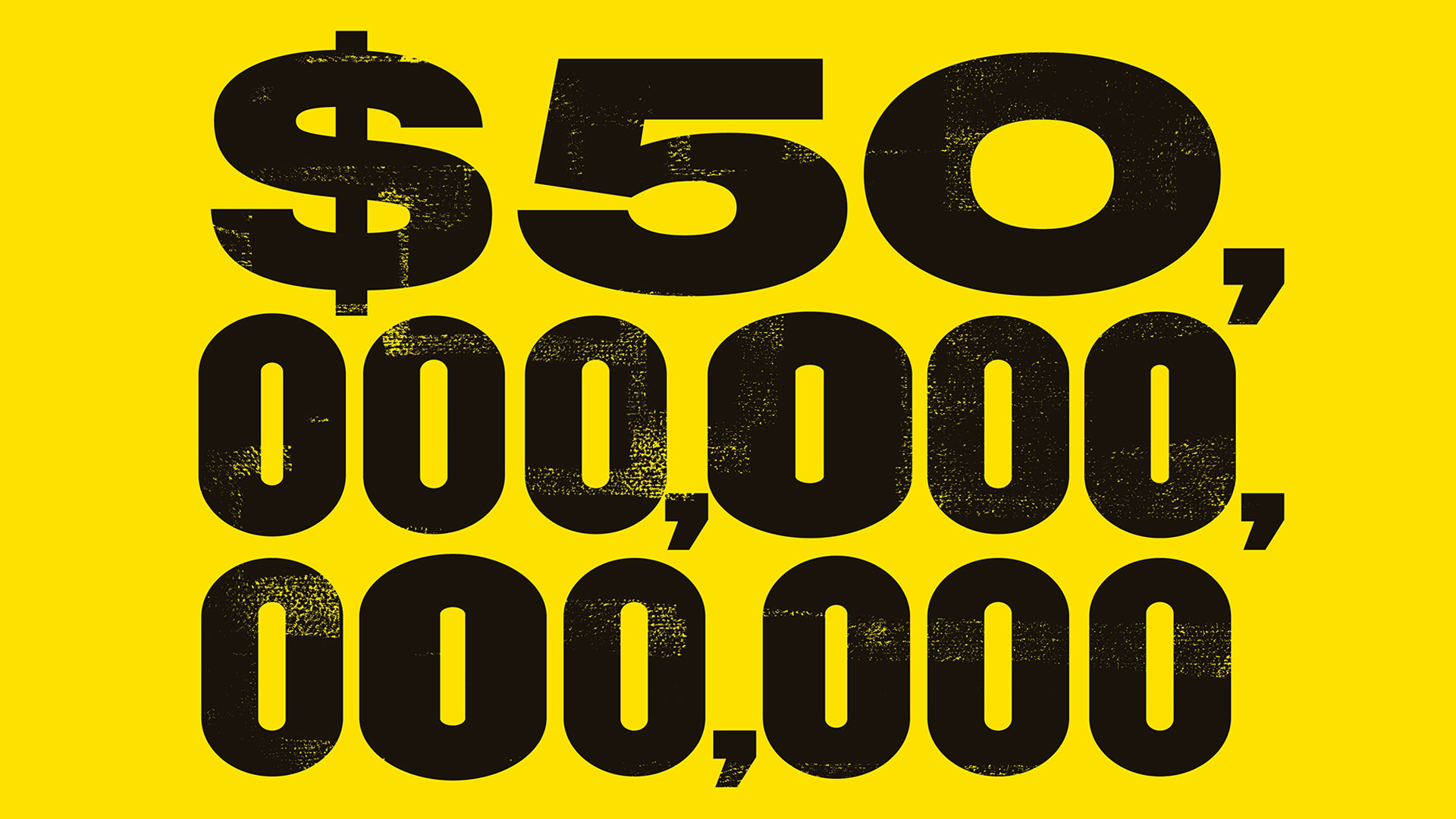Can you picture 50 trillion dollars? It’s quite a lot. Fifty trillion dollar bills stacked one on top of each other would easily reach into space. Laid out, they would cover nearly 200,000 square miles, almost the size of France. The likes of Elon Musk and Jeff Bezos, the richest people on earth, enjoy a personal wealth of around $200 billion each – a figure that is smaller than one per cent of $50 trillion.
Considered in the abstract like this, $50tn is an incomprehensible sum of money. But what if you were told it was also the total price of tackling climate change globally and saving the planet for ever?
Estimates as to this figure vary in reality, depending on various factors, and the true picture of climate economics is more complex than a single headline figure, because different interventions can lead to positive and negative economic impacts in the medium and longer term. But attempts to put a price on saving the planet can prove useful for climate activists and economists alike – not least because they overwhelmingly demonstrate that the costs of inaction would be far greater.
A source of debate
While various organisations and groups have worked to stamp a price on tackling climate change, they have largely failed to reach consensus for a number of reasons. Not all agree on what is meant in the first place by saving the planet: is it a case of avoiding the worst effects of climate change or of turning around our fortunes completely? And even fewer agree on the specific actions required and how they should be prioritised.
Morgan Stanley, most commonly associated with the $50tn figure which came from its 2019 report Decarbonization: the Race to Zero Emissions, identifies specific areas of investment and attaches price-tags to each: renewables; electric vehicles; carbon capture; hydrogen production and biofuels. But others include in their analyses the protection of biodiversity, improved infrastructure to protect against extreme weather, the introduction of carbon taxes on business, and any number of other actions. Estimates therefore vary between around $300bn and $100tn, and tend to refer to investment needed over the next two decades rather than a single static figure.
Where scientists agree broadly is on the three pillars of action needed to halt global warming and reach net zero globally: mitigation, referring to actions that will slow the rate of global warming; adaptation, or how to live with the effects of global warming that are irreversible or already baked in to the future; and resilience – the transition to a new, sustainable way of life.









